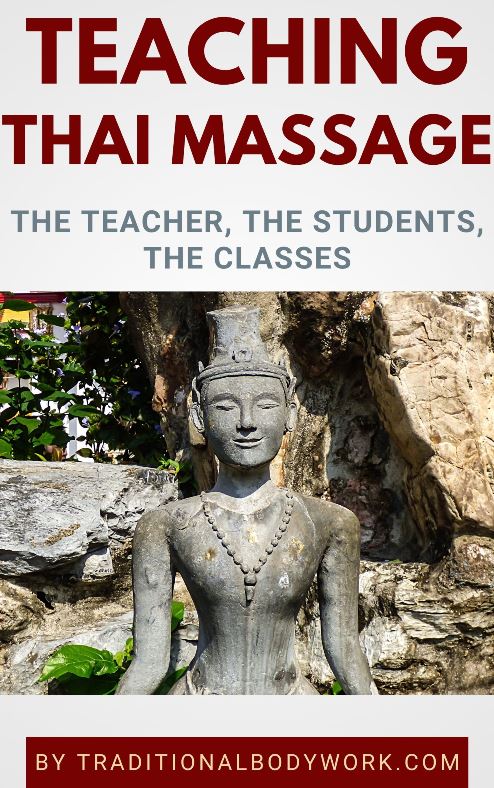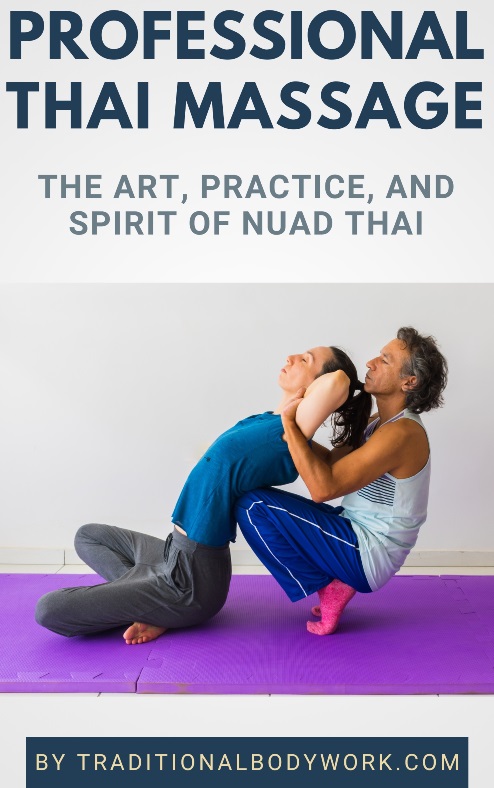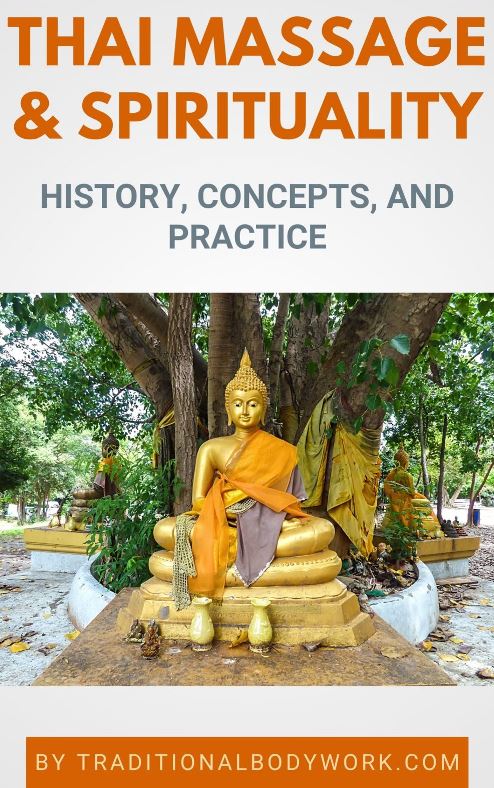
When you have become a Thai Massage teacher the question may arise whether to start teaching independently — or for an existing Thai Massage school or other bodywork institute as an employee or freelancer.
In Thailand, where Thai Massage training is big, you have many mid-sized to large schools or training institutes, and subsequently quite a number of teachers connected to each establishment. A nice example in Thailand is the Wat Pho Medical Thai Massage School, where you will see dozens of teachers teaching students on a daily basis.

Outside of Thailand, large or even mid-sized Thai Massage schools are rather an exception, and you’ll quickly be “forced” to start working independently, that is, to setup your own school or training facility. Of course, alternatively, you could move to the city where a larger school operates and apply for a job.
Nevertheless, things are not that simple. Each Thai Massage teachers got his or her education through a certain Thai Massage lineage i.e. style, and it’s not that obvious that a TMC Thai Massage teacher can find a job at an ITM Thai Massage style school abroad. Or, that a Wat Pho acupressure protocol schooled teacher can simply start working at a Sunshine Lineage Thai Yoga Massage school in Europe.
Not only will a teacher need to re-educate him or herself, but the question is if a teacher wants to do that (and if the school wants to hire a teacher from another lineage). In the end, a Thai Massage instructor is probably quite happy with the style learned and wants to teach that particular style and method.
So, often in the West, or outside Thailand in general, a Thai Massage teacher who became an instructor in Thailand with a Thai school, will start teaching independently. If the teacher training was taken at a school or institute abroad, in the USA, Canada, Spain, UK or Germany, for instance, the fresh teacher may find a job at the school itself if there are any job openings. That at best.
Of course, it would be pleasant to begin at an already existing Thai Massage school in order to gain teaching experience before starting on your own. One could start as an employee (with all that comes with it) or as a freelancer (again, with all that comes with it, and positioning you as a sort of in-between).
The advantage of an existing Thai Massage or other bodywork school is that it has already earned itself a name and, if things are going well, there will be a steady influx of students, and thus, opportunities for you to actually teach. Moreover, if it’s a reputed and famous school it will give you some weight and leverage later if you would want to start on your own.
In the long run, I think a Thai Massage instructor would want to teach independently — his or her style changes, a certain direction is taken, and it’s a natural development to want to teach in your own way with your own style. Mind that teaching as an employee (or freelancer) will oblige you to adhere to the study curriculum of the school, maybe inhibiting your creative freedom or perhaps even not agreeing with certain aspects of the teachings.

Another aspect is the financial issue. Being an employee gives you a fixed salary and a kind of stability, yet teaching independently is unsure, but can give you much more income. In the end, it’s you who teaches and does the job, so it would be natural that you would gain the bigger part of the tuition.
On the other hand, an established school needs to pay rent or maintenance for a building and materials, pay for advertising and marketing, has a more extensive bookkeeping job, and has already earned a certain goodwill, which you, just starting, will all still need to do. In that sense, it’s again a sort of fair that perhaps the greater part of the tuition income goes to the school or institute you work for.
Another way of teaching independently is the nomadic way. If in some way you have earned yourself a reputation and if you have developed a certain Thai Massage style or special technique, you may be able to “sell” that to Thai Massage schools or other bodywork training institutes, and give workshops here and there in the form of occasional training events.
Anyway, as you see, there are pros and cons, and I think it depends on your situation (starter or experienced, the place you live, your ability to invest in your own facility, etc.) what is best to do at a certain moment in your life. I, for instance, started as a Thai Massage therapist and assistant-teacher for an establishment that was both a school and therapy center, being lucky to find a job that matched with my Thai Massage lineage.
Only three years later, I finally setup my own teaching facility in a fixed spot. It was not easy, it costed me six months before I started to get students and it took me a year to gain a reasonable income from it, in the meanwhile continuing with practitioner work. Later on, when I left the place and stopped the school, I started with teaching Thai Massage in a variety of countries and in fact became a nomadic teacher (and practitioner, by the way).
















